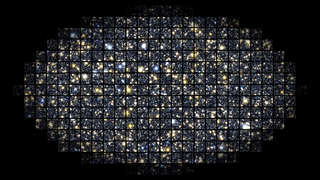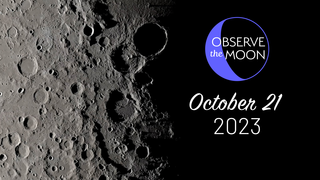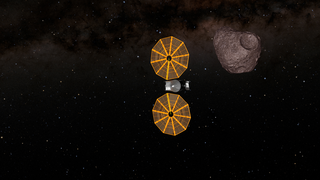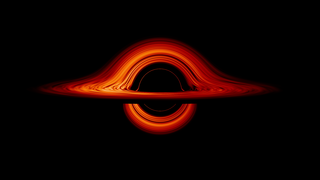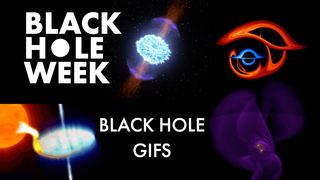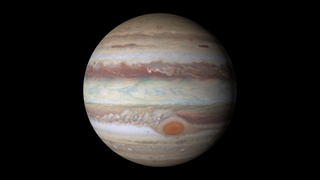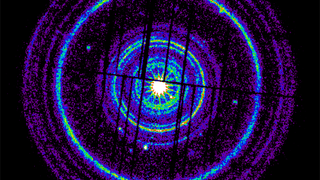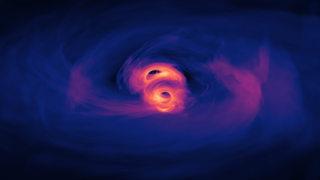Suzaku Study Points to Early Cosmic 'Seeding'
Between 2009 and 2011, researchers from the Kavli Institute for Particle Astrophysics and Cosmology (KIPAC), jointly run by Stanford University and the Department of Energy's SLAC National Accelerator Laboratory in California, used Suzaku's unique capabilities to map the distribution of iron throughout the Perseus Galaxy Cluster.
What they found is remarkable: Across the cluster, which spans more than 11 million light-years of space, the concentration of X-ray-emitting iron is essentially uniform in all directions.
This tells astronomers that iron — and by extension other heavy elements — already was widely dispersed throughout the universe when the cluster began to form. Explaining this helps scientists better understand what the universe was like 10 to 12 billion years ago, a time when rapid-fire supernova explosions were common and black holes were especially active.
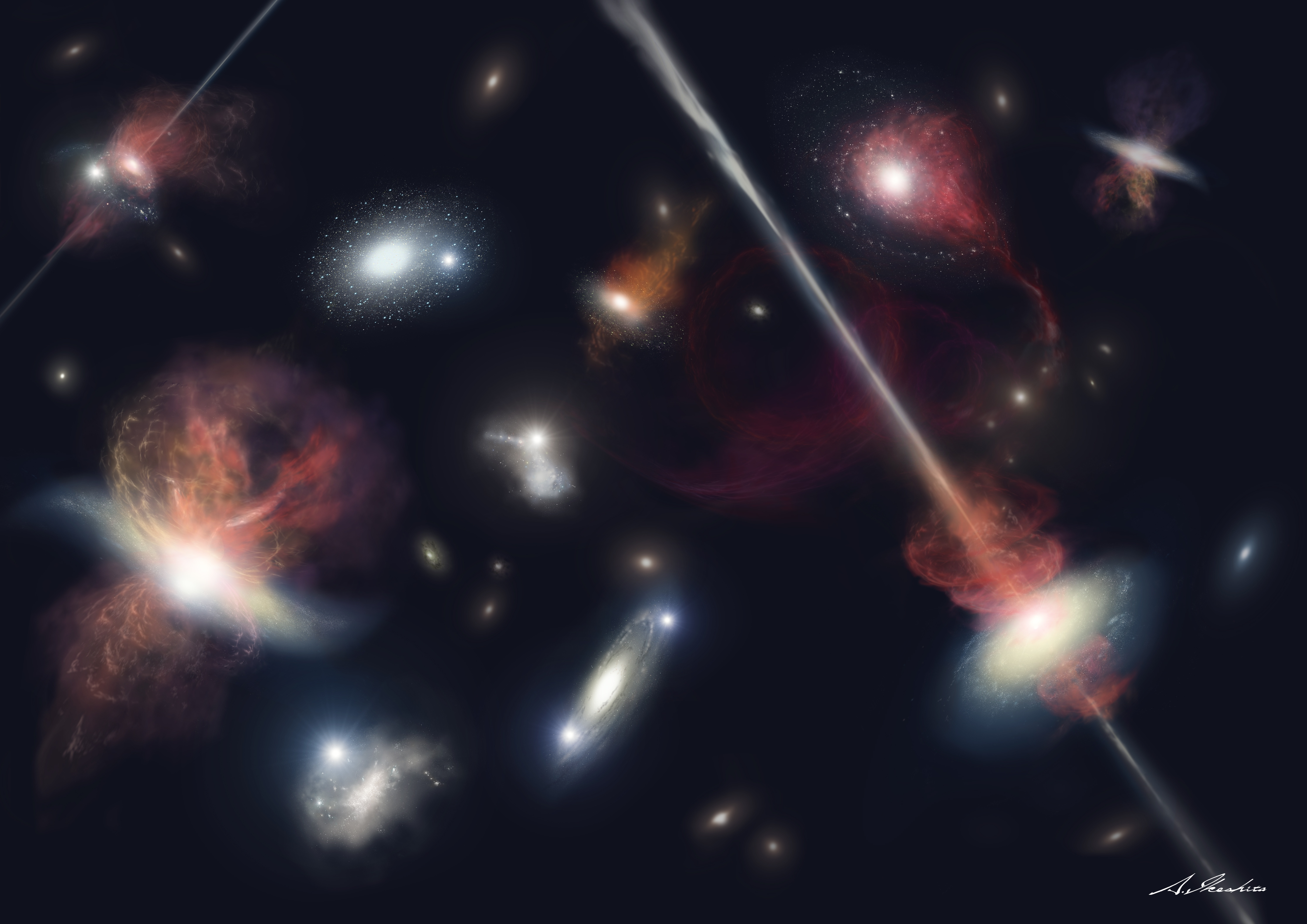
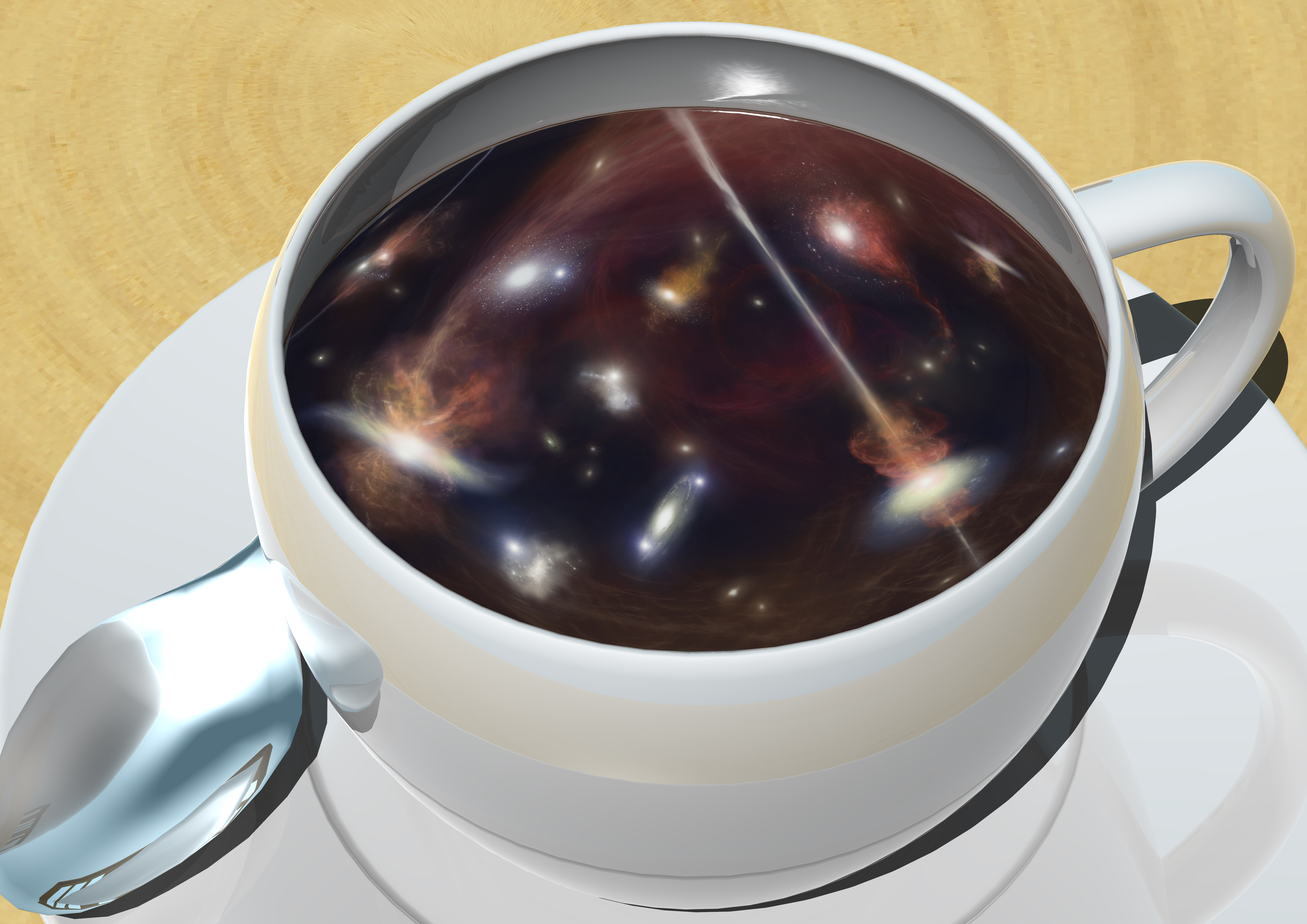

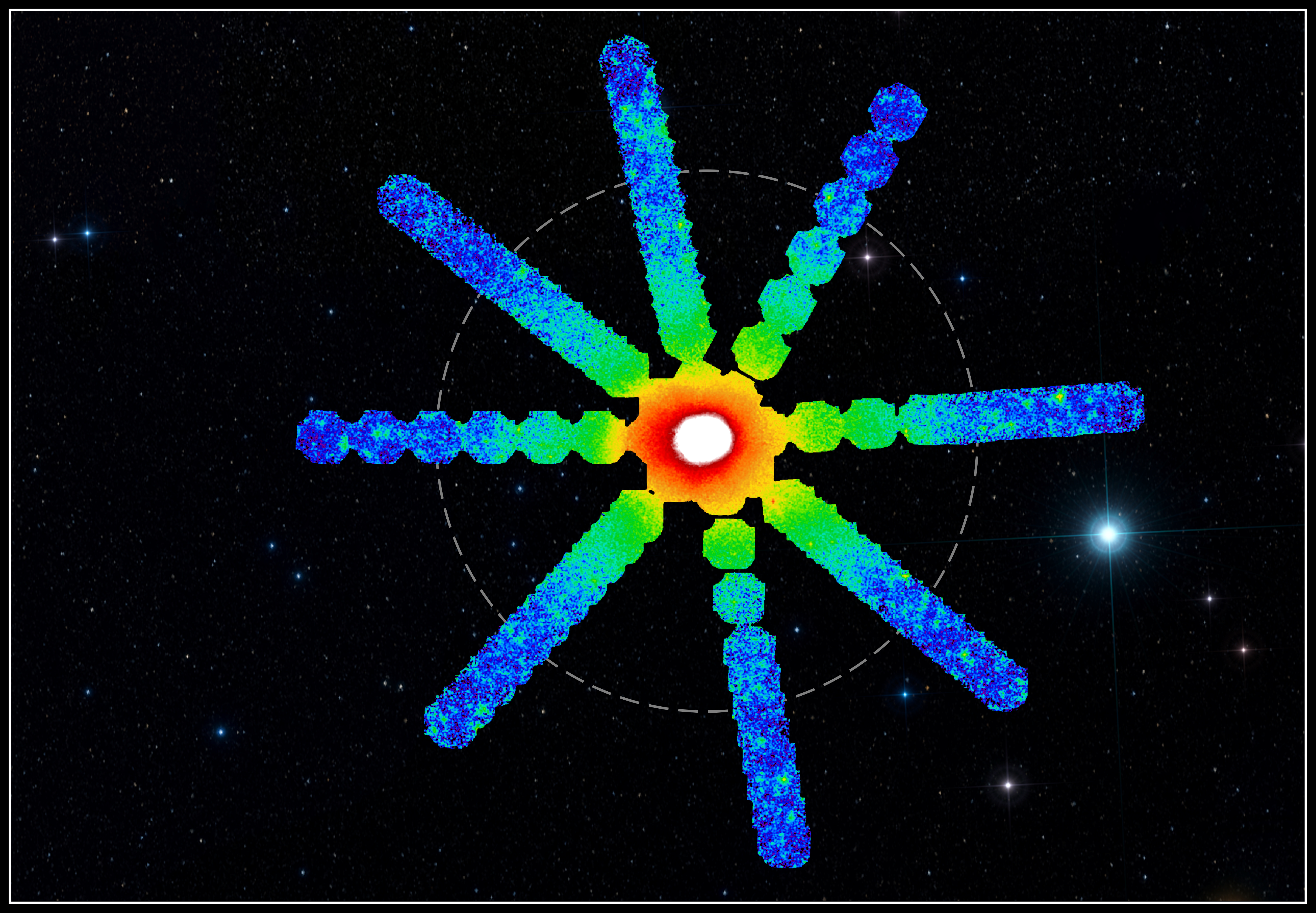
Credits
Francis Reddy (University of Maryland College Park): Lead Science Writer
Francis Reddy (University of Maryland College Park): Graphics
NASA's Goddard Space Flight Center
https://svs.gsfc.nasa.gov/11388
Mission:
Suzaku
This item is part of this series:
Astrophysics Stills
Keywords:
SVS >> Astrophysics
SVS >> Suzaku
NASA Science >> Universe


